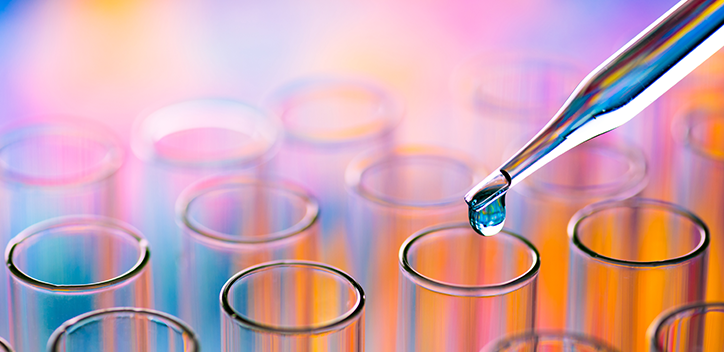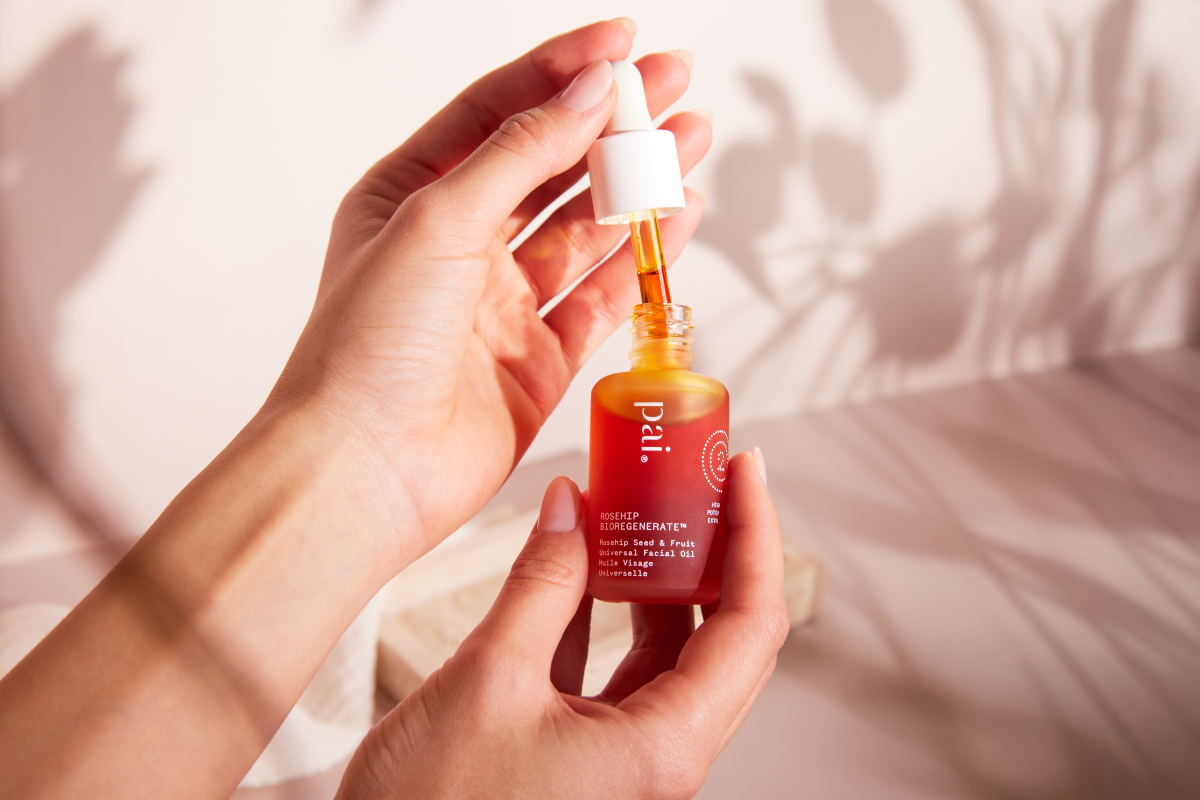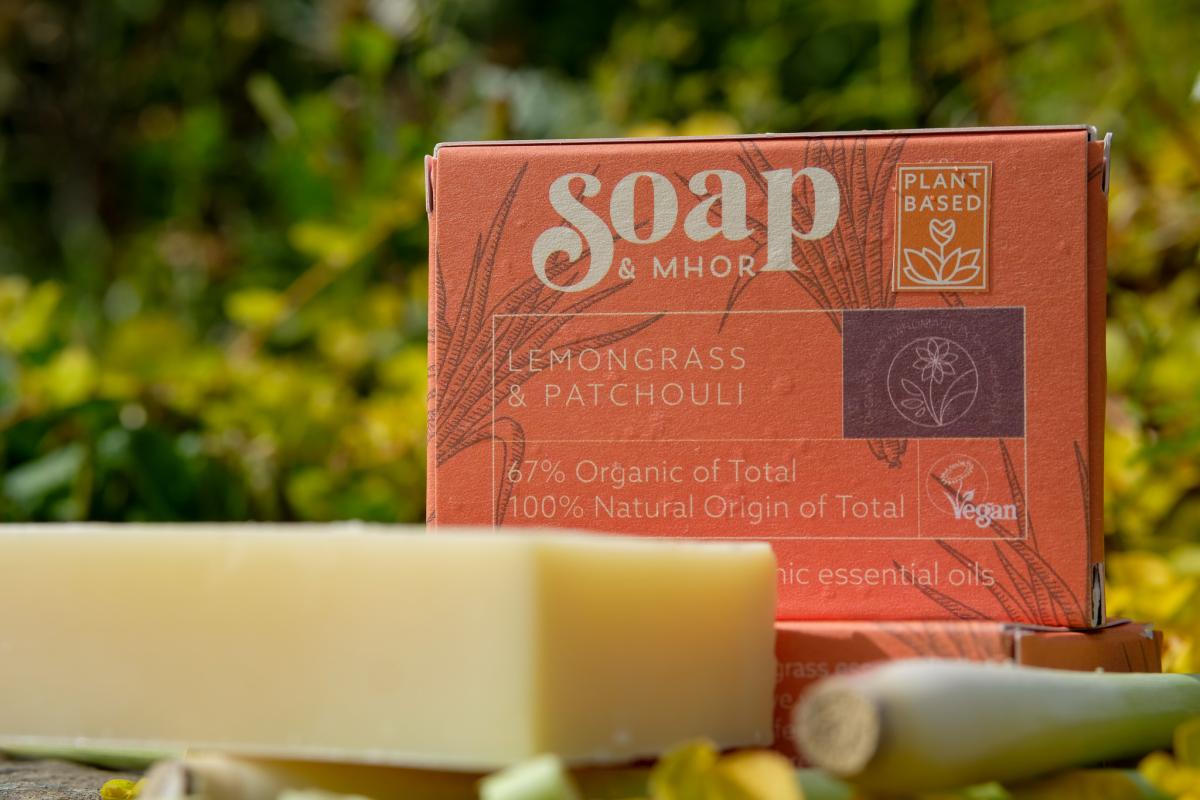Cruelty-Free vs Vegan: Why the Vegan Trademark is the gold standard in beauty

When shopping for beauty and cosmetics, whether in store or online, it’s impossible to miss the huge number of products labelled with terms like 'cruelty-free' and 'vegan' on packaging and marketing materials. But what do these terms actually mean? Are they interchangeable? What do consumers actually look for when purchasing skincare, makeup and other personal care products?
These buzzwords have become selling points as consumers increasingly demand products that align with their ethical values, but in the rush to meet this demand, the true meaning behind these terms often gets blurred, leaving shoppers confused about what they're supporting with their purchases.
As the vegan beauty market continues its impressive ascent, predicted to reach a staggering $32.5 billion by 2032, understanding the distinctions between 'cruelty-free' and 'vegan' has never been more important. This goes for committed vegans, as well as anyone who cares about making informed choices about the products they use on their skin, hair, and bodies every day. Understanding these distinctions are also essential for the brands developing those products.
What does Cruelty-Free Actually Mean?
When a product declares itself 'cruelty-free', either through self-labelling or through a different certification, it's making a specific claim about animal testing: that the product has not been tested on animals. This is certainly a step in the right direction, representing a move away from outdated and inhumane practices that have been standard in the beauty industry for decades, and the result of a consumer shift to care more about the ethics behind the products they’re buying.
However, the cruelty-free label addresses only one aspect of animal exploitation in cosmetics. Here’s what isn’t mentioned by a cruelty-free label:
-
While the product itself may not have been tested on animals, this term doesn’t say anything about what is in the product. It can still include ingredients derived from animals, many of which involve significant suffering in their production.
-
Some certification schemes allow companies to use a Fixed Cut-Off Date (FCOD), which means the brand may have conducted animal testing before a certain date but committed to stop afterward. This creates a loophole where a company's historical testing practices are essentially wiped clean after they cross an arbitrary threshold.
-
The term 'cruelty-free' isn't universally regulated, leaving room for inconsistent standards between different certification schemes. What qualifies as cruelty-free for one organisation might not meet the criteria for another.
-
Products labelled cruelty-free could still be sold in markets like China where post-market animal testing has historically been required by law, creating a conflict between claims and practices.
This limited scope means that while a 'cruelty-free' moisturiser might not have been directly tested on animals, it could still contain a range of animal ingredients that all involve animal exploitation and cruelty. Some of these ingredients are listed below but this is not an exhaustive list.
-
Collagen: a protein taken from cows’ bones, skin, ligaments and tissues that is used in many face creams.
-
Keratin: a protein derived from animal hair, horns, and feathers. It's commonly found in hair strengthening products, treatments, shampoos, conditioners, and nail hardeners.
-
Guanine: make-up products such as eyeshadows and highlighters use an animal-derived ingredient called guanine to achieve a shimmering effect but this is harvested from fish scales.
-
Tallow: made from the fat of farmed animals, this ingredient can be found in soap and foundation among other products.
-
Carmine: a red pigment made from crushed cochineal insects. It's commonly found in lipsticks, blushes, and red-coloured cosmetics
-
Castoreum: a secretion from beavers' scent glands that’s used in perfumes and fragrances as a fixative and for its musky, vanilla-like scent in high-end perfumes.
Vegan Beauty: The Comprehensive Approach
Vegan cosmetics represent a more thorough commitment to ethical beauty. Simply put, the Vegan Trademark means more. When a product is truly vegan, to the standards set by The Vegan Society, it means:
-
It contains absolutely no animal-derived ingredients or by-products in the finished product or anywhere along the supply chain.
-
The development and/or manufacture of the product, and its ingredients, must not involve or have involved, testing of any sort on animals conducted at the initiative of the company or on its behalf, or by parties over whom the company has effective control.
The challenge for consumers is that identifying animal-derived ingredients isn't straightforward. Many are listed under scientific or botanical names that mask their animal origins. For instance, 'Cera Alba' would not be immediately flagged until you discover it's simply Latin for beeswax. 'CI 75470' doesn't immediately bring to mind crushed insects, but that's exactly what carmine is.
Our research* has revealed just how difficult this identification process can be for consumers. When we asked 1,000 individuals to identify animal-derived ingredients from a list of ten common cosmetic components, only 2.6% correctly identified all of them. Even more concerning, our 2023 survey found that 43.1% of respondents were either 'not very confident' or 'not at all confident' in their ability to identify animal-derived ingredients in cosmetics.
This confusion isn't surprising given the complexity of ingredient lists and the sophisticated terminology used in the beauty industry. Even dedicated label-readers can find themselves accidentally purchasing products with hidden animal derivatives.
Why the Vegan Trademark Sets the Gold Standard
Established in 1990, the Vegan Society's Vegan Trademark was created specifically to cut through this confusion. Supporting both consumers and brands offering vegan products, the Trademark offers a gold standard in ethical certification by comprehensively ruling out both animal testing and animal-derived ingredients. When you see our sunflower logo on a product, you can shop with confidence knowing that it:
-
Contains no animal ingredients or by-products whatsoever, from the most obvious to the most obscure.
-
Has not been tested on animals by the company or on its behalf at any stage of development.
-
Has been thoroughly verified through our rigorous certification process, where our experts examine every ingredient and its source.
-
Is not sold in markets where post-market animal testing is required by law.
When it comes to animal testing, the Vegan Trademark covers so much more than the basics.
-
We do not allow any animal testing initiated by the brand owners or on their behalf, regardless of when it occurred. There's no Fixed Cut-Off Date that wipes the slate clean.
-
We require complete verification of all ingredients to ensure they're free from animal derivatives, examining manufacturing processes as well as the ingredients themselves.
-
Our standards are clear and consistent, providing true transparency for consumers who want to make fully informed choices.
This thoroughness has made the Vegan Trademark the most trusted certification in the market, with over 35,000 cosmetic and toiletry products registered worldwide, no brand is too small. From products by small start-up brands to multinational corporations like Primark and The Body Shop, companies recognise that our certification provides credibility that consumers trust.
The Growing Demand for Vegan Beauty
The rise of vegan beauty extends far beyond those following a vegan lifestyle. Research shows that 39% of British women who exclusively buy vegan beauty products aren't actually vegan themselves. These consumers are choosing vegan products not necessarily because of dietary or lifestyle choices, but because they recognise the additional assurances that vegan certification provides.
This demand spans all product categories. When we asked consumers which products they'd like to see more vegan options for, the responses were varied:
1. 35.3% want more vegan registered shampoo, conditioner and hair styling products
2. 35.1% are looking for more vegan toothpaste and oral care products
3. 32% selected body moisturiser and skincare
4. 31.1% want more vegan deodorants
5. 25.2% are seeking vegan fragrances
These numbers reveal not just a niche interest, but a mainstream shift in consumer preferences. The beauty industry is responding, with major players like Lush (a Vegan Trademark holder since 2006) now offering a product range that's 95% vegan, and The Body Shop committing to have their entire product range registered with the Vegan Trademark.
One Trademark, Complete Peace of Mind
There are lots of competing claims and certifications out there, but the Vegan Trademark offers simplicity. It’s one, recognisable certification that covers the bases consumers care about. Rather than searching for multiple labels or trawl through complicated ingredient lists, shoppers can comfortably and quickly rely on the Vegan Trademark as a comprehensive assurance that animals have not been harmed in the process of making the product they’ve just picked up.
For brands, registering products with the Vegan Trademark demonstrates a genuine commitment to ethical standards that go beyond minimal compliance or marketing trends. It's a declaration that they've done the hard work of ensuring every aspect of their product meets the highest ethical standards.
For consumers, the Vegan Trademark offers the confidence to make truly compassionate choices without needing to become experts in cosmetic chemistry or spend extra time searching for different labels. It means being able to shop according to your values at a glance, without the time-consuming research that would otherwise be necessary.
The need for this clarity has only become more apparent in light of recent challenges to animal testing bans. In 2023, the UK's decades-long ban on animal testing for cosmetics faced a significant setback when a court ruling sided with the government's interpretation allowing testing for certain chemicals. While there was a partial reinstatement of the ban following public outcry, chemicals used in cosmetics ingredients are still being tested on animals in some contexts. This confusion and constant change makes third-party certification ever more important.
The Vegan Trademark Means More Than Just a Label
As we continue our '#SayVegan campaign' we're proud to sing the praises of a certification that recognises that true compassion means leaving animals out of cosmetics entirely, whether in testing labs or ingredient sourcing.
Importantly, the Vegan Trademark means more than just meeting minimal standards. It represents a comprehensive commitment to ethical beauty that consumers can trust. It's not about following trends or making vague claims about products, it's about providing concrete assurances backed by over three decades of expertise in vegan certification – from those who coined the term itself.
The Vegan Trademark stands as the definitive standard for truly ethical cosmetics and toiletries.
The Vegan Society's Vegan Trademark is the original vegan certification, established in 1990. Today, over 70,000 products carry the Vegan Trademark worldwide, with cosmetics and toiletries being our largest category at over 35,000 products. To learn more about getting your products certified, visit vegansociety.com/trademark.
#VeganTrademarkMeansMore
* Source: Survey run in 2021 by The Vegan Society via Attest of 1000 individuals in the UK.
By Vegan Society Marketing Officer, Charis Collier
The views expressed by our bloggers are not necessarily the views of The Vegan Society.



